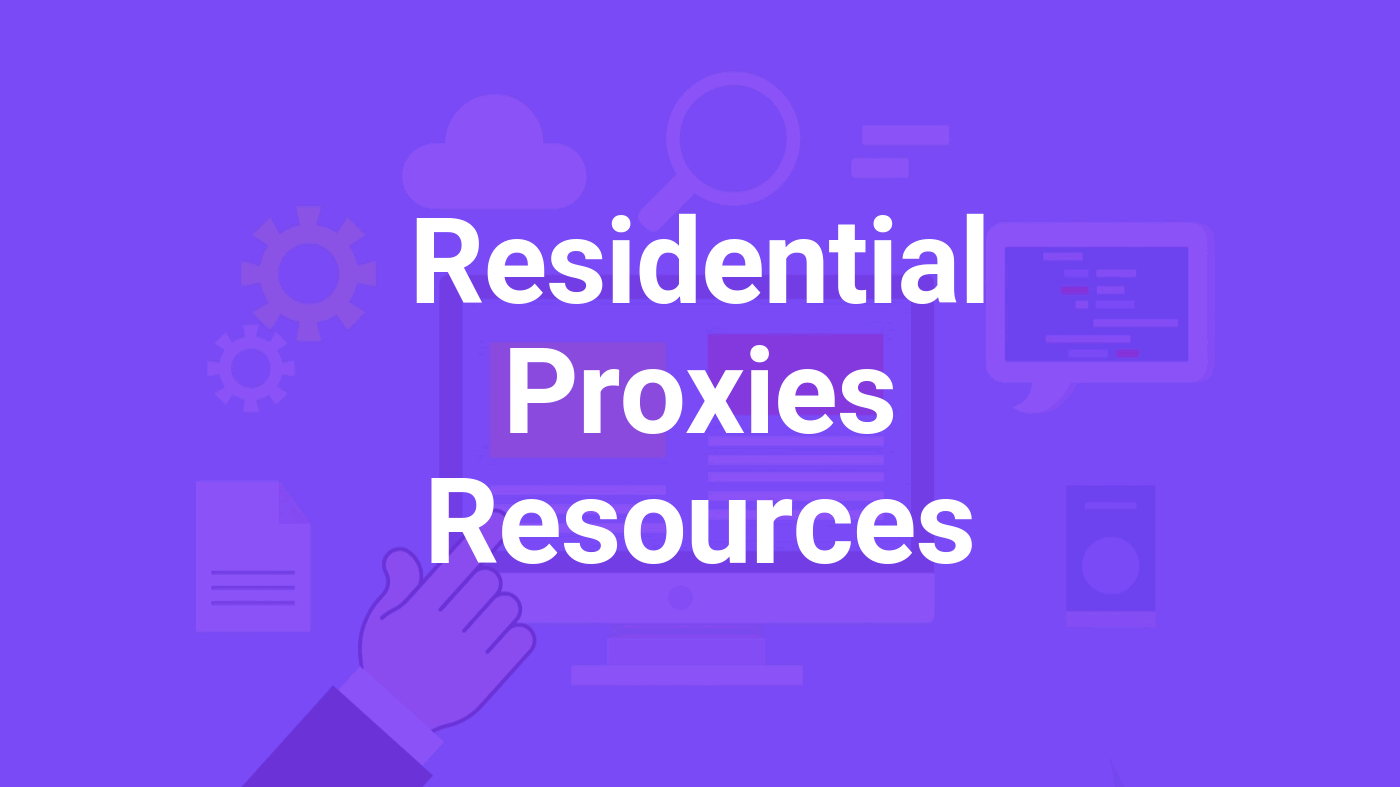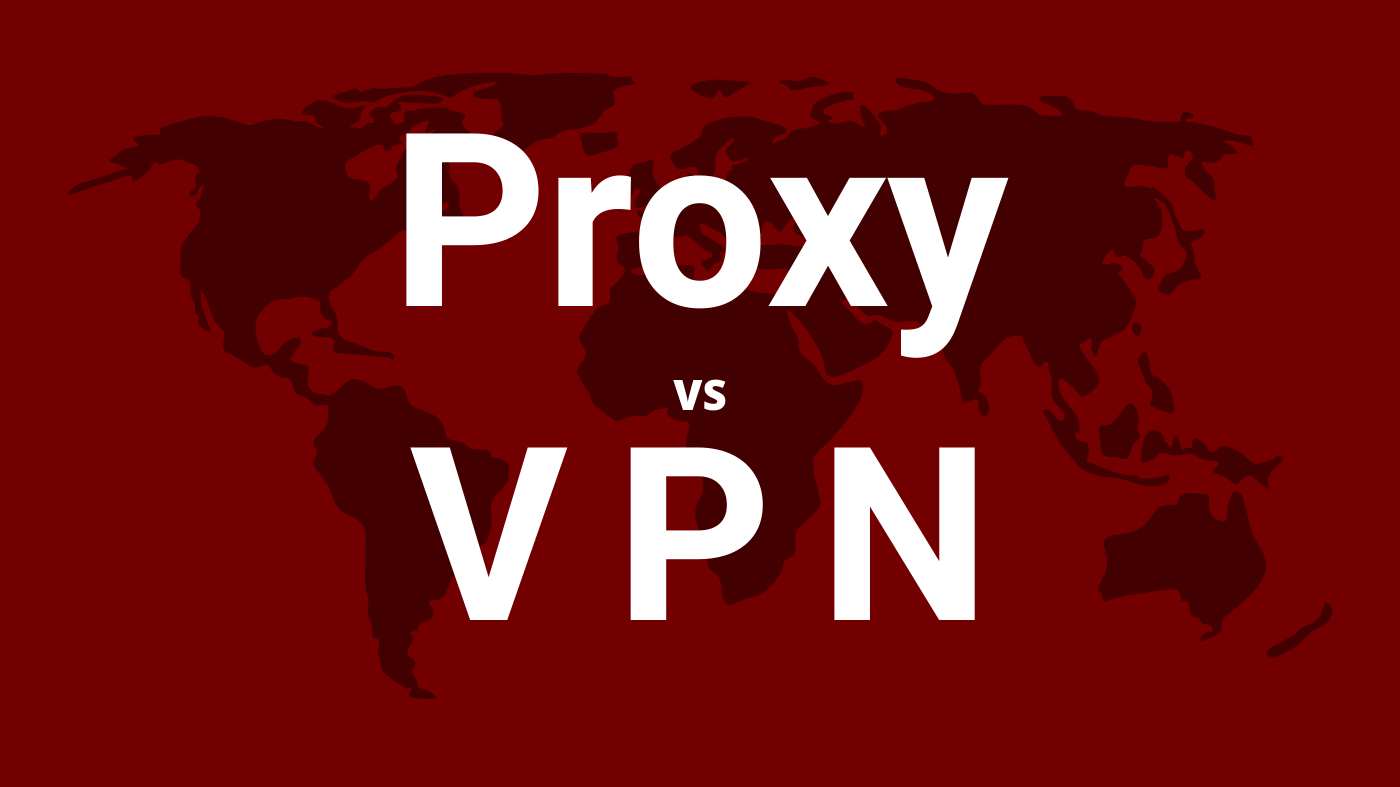*This website contains affiliate links. If you click on these and make a purchase, we will receive a small percentage of the sale.
Here are some of the most common questions asked by developers and marketers about residential proxies:
- Are static residential proxies a real thing?
- Can residential proxies usage be detected?
- Why are residential proxies more expensive?
- Can I find static residential proxies from a selected US state?
- Where can I buy proxies with unmetered bandwidth?
- Can I buy residential proxies by hostname?
- Where can I get a free trial?
- Why are residential proxies slow?
- How can I test a residential proxy network?
- Do I need proxies, after all?
- Where can I buy a single static residential proxy IP?
- What is the difference between residential proxies and sneaker proxies?
- How does pricing work?
- What services should I buy for a bot?
- Can I use residential proxies for scraping websites?
- Can a proxy use both HTTP and SOCKS5 protocols?
Answering these questions is not enough. You also get one more set of questions you should ask before placing your order with one provider or another.
This is just the start.
As time passes, I will update this list and add more questions and answers.
5 Questions To Help You Understand Residential Proxies
1. Are static residential proxies a real thing?
If you would’ve asked me this question a while back, I would’ve told you NO. They are not a real thing. But that’s not the case anymore.
Recently, there were some innovations in the market and now, I can say without a doubt: Yes. You can find real static residential proxies.
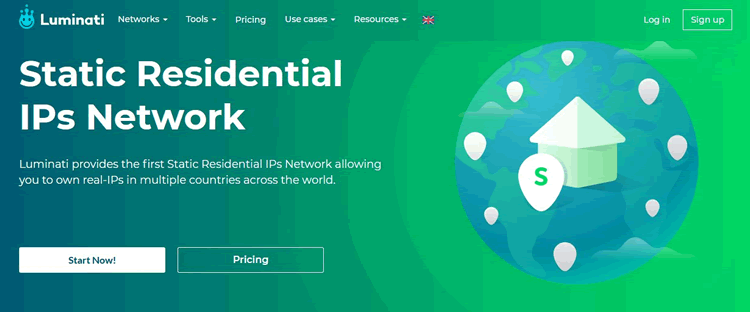
What are these proxies?
Static residential proxies are proxies with fixed IP addresses from consumer-oriented ISPs.
Creating them was a challenge, but Bright Data did it. And thanks to them, you can now get the best out of both words:
- residential – real, residential IP addresses
- static – fixed and always available (like datacenter proxies)
These packages behave as datacenter dedicated ones:
- static – these IPs won’t change unless you want to
- dedicated – you are the sole users – they won’t get blocked by other users
2. Can residential proxies usage be detected?
I have to answer this question with another question: by whom?
A proxy’s primary purpose is to hide your IP address behind its own.
Now, to identify if a single residential IP address is detected as a proxy is quite a difficult thing to do.
Have a look at what info an IP displays:
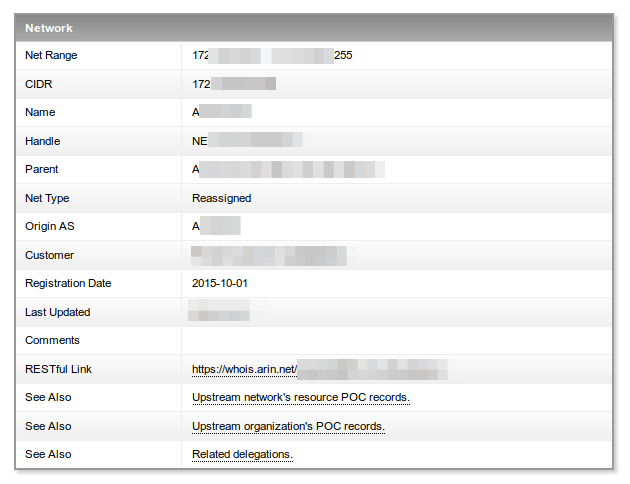
Now, if you perform the same test with your Internet home connection, you will get a different ISP. But still a consumer-oriented one nevertheless.
So, identification based on IP info is almost impossible – it’s like finding the needle in the haystack. Quite hard to do it, if not impossible.
However, pattern-based identification is possible and quite easy to do it. And it can be automated and integrated into traffic-filtering systems. But it can also be circumvented.
Pattern-based identification is possible, thanks to the way residential proxies are setup initially.
A residential proxy network randomly allocates IPs from its pool. One request can go through a London IP address, while the next one is forwarded through a Seattle IP. And the next one after that passes via a Miami, Florida IP.
How many people surfing the web do you know that can change between locations thousands of miles away?
Based on this usage pattern, the accessed websites can detect residential proxy usage. But, you can hide this pattern and hide the fact that you’re using these proxies. How? With the help of a proxy manager.
Most providers offer one type of proxy manager or another. This is a simple customization tool through which you use to control the IPs used.
These tools instruct the provider’s master proxy server to direct all your requests through (let’s suppose) Miami-based IPs.
Anybody analyzing your traffic sees your requests originating from the same area/city, making it look the same as most users’ connections.
You can hide your usage this way only from actors located between the proxy pool and the websites you access.
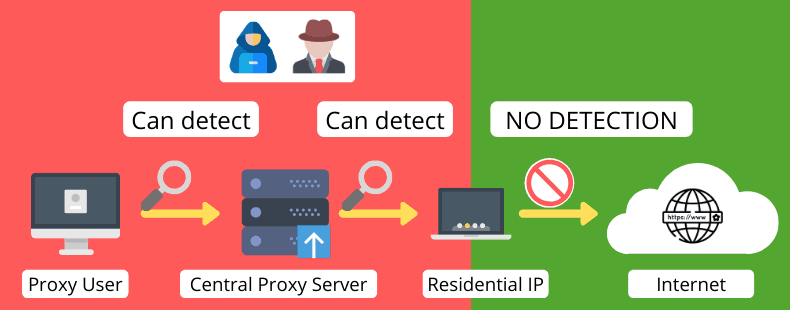
At the other end of the connection, anybody located between your device and the master proxy server will see all your requests and your real IP address.
They can see almost all your traffic because proxies do not create an encrypted tunnel in the same way as a VPN does. This is one of several differences between proxies and VPNs.
3. Why are residential proxies more expensive than datacenter (private) proxies?
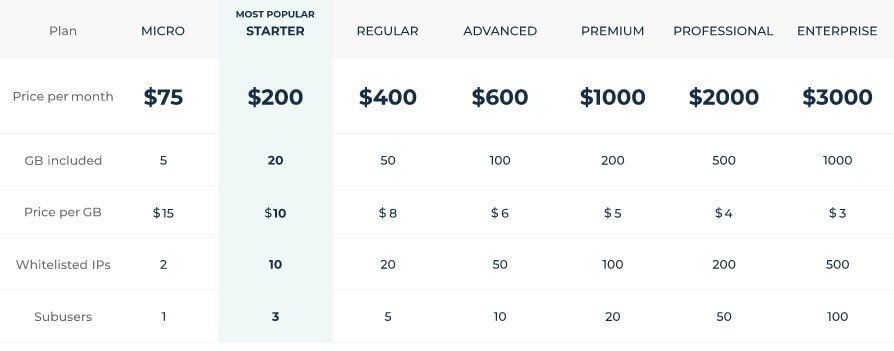
Yes, residential proxies seem more expensive than datacenter ones. There’s no doubt about it – some packages cost north of $1000 per month.
But this is not the right way to look at their pricing model.
I’ll get into it and explain it from two different angles.
First, there’s the creation method of these proxies. As mentioned in a previous article, residential IPs are rented by their providers from regular Internet users – folks like you and me.
They rent (get access) to these IPs through app developers. Because most proxy providers attract app developers through their SDK – which is a piece of code developers install in their apps to turn their users’ devices in temporary proxy servers.
Here’s what I wrote in that article:
“To gain access to these millions of devices… Bright Data offers a monetization method to app developers in exchange for adding their app users as peers to the proxy network.
In this way, developers are incentivized to add the devices that installed their app to the proxy network… app developers with millions of downloads install this piece of code in their apps, which is then mounted on millions of devices, that become dormant IPs in the proxy pool. And when these devices are idle, the SDK kicks in and “adds” the device to the proxy network for routing traffic through its connection.“
The second reason is your actual access to the proxy pool.
When you buy residential proxies, you don’t receive 1, 3 or 10 IPs. You get access to an IP pool of thousands or millions of IPs.
That’s why you can’t calculate your cost per IP, as in the case of datacenter proxies.
For example, when you buy ten datacenter proxies for $29, each IP costs you $2.9 per month.
On the other hand, if you get access to a proxy pool with million of IPs, you can’t calculate your costs on a per IP basis because you won’t be able to use each individual IP.
But, if you want to do the math:
1.000.000 IPs ………. $300 per month (for all 1mil IPs)
1 (single) IP ………. $0.0003 per month (per IP)
That’s 3% of a cent.
So, residential proxies are more expensive in monetary terms.
Meaning they will cost you more to get access to a proxy pool. But this access becomes viable (profitable) when you need to use hundreds or thousands of IPs.
Instead of buying hundreds or thousands of datacenter proxies (for hundreds or thousands of dollars), you can get access to millions of IPs for just a few hundred bucks.
Also, some cheap residential proxy services start from $100 or less, so you don’t have to buy into the expensive ones (with large IP pools) from the start. You can get cheaper ones and then scale up.
4. Can I find static residential proxies from a selected US state?
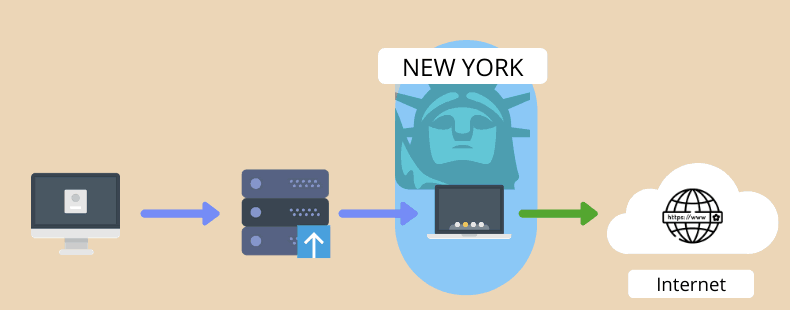
I saw this question on a forum and I can tell you with certainty that Yes, You Can!
All providers offer a proxy management tool through which you manage your access to their proxies.
The IPs you want to use and how to rotate based on the rules you set in the proxy manager.
And with this management tool, you can set the network to forward your traffic only through the city or state you need.
5. Where can I buy proxies with unmetered bandwidth?
You can buy residential proxies with unmetered bandwidth from Stormproxies. Now, you can use residential proxies without paying any extra traffic fees by getting your residential IPs from Stormproxies.
Their packages start at $50/month. But they also offer a $19/month package with one port access.
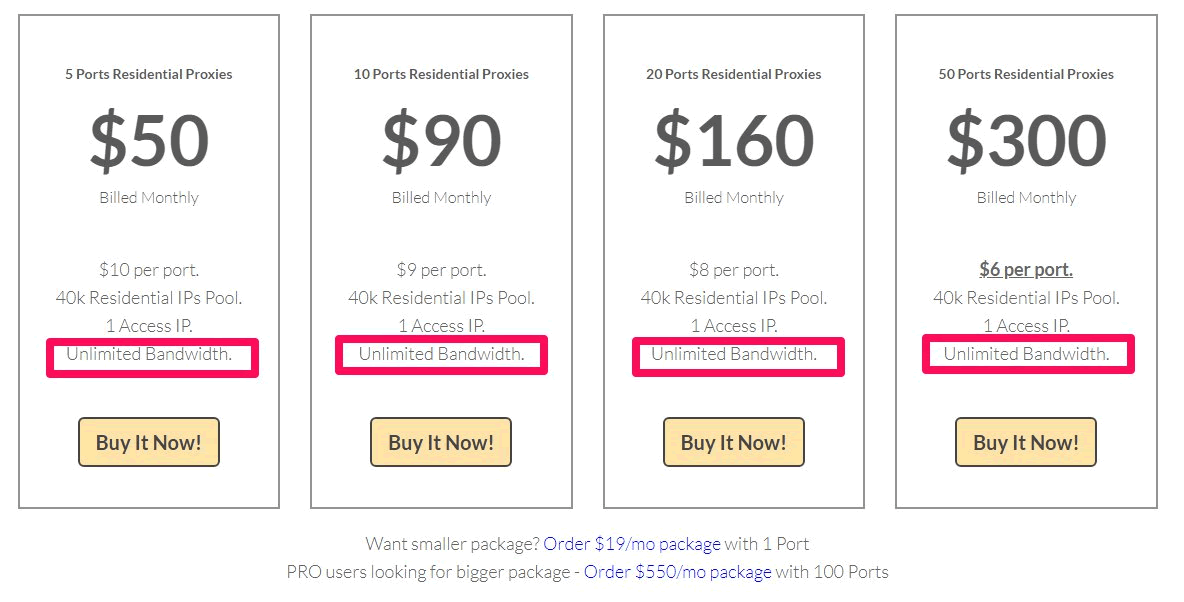
5 Questions To Ask When Buying Residential Proxies
By now, I hope you have a clear picture of residential proxies and you can gauge if you need them or not. Here is a set of questions most users have asked after they decided that residential IPs are a fit for them.
1. Can I buy residential proxies from AT&T, Verizon, or Spectrum ISP?
Do you mean Verizon residential proxies or Comcast proxies?

Providers won’t sell hostname-branded proxies. At least not for the moment.
They offer (you guessed it) the proxy management tool that you can use to filter and access only specific ASNs (but this doesn’t guarantee that a provider has static IPs from Verizon, Comcast, CenturyLink, Vodafone, etc).
But, you can restrict your proxies to ASNs from a particular city (for example New York, or London).
This granular filtering is often used for ad verification and other data mining projects.
NOTE: If you need this type of IP filtering and set your eyes on a particular provider, I suggest you contact them before making your purchase and make sure they allow it.
2. Where can I get a free trial?
Are you looking for a free residential proxies list? Unfortunately, you won’t find residential proxies with a free trial.
Even if you find one, the free trial will be a limited-access one, making it difficult to assess the capabilities of the whole network.
Providers do not offer free trials to prevent abuses of their proxies from spam. In this way, they protect their network (from spam) and, at the same time, they can offer you working proxies for all your projects.
Think of fraudsters and scammers who can register for a free trial for spamming the hell out of a proxy network.
So, you can consider that a residential proxy doesn’t offer a free trial as the protection provided for its paying customers.
While free residential proxy lists and trials do not exist, most reputable services offer a 24h, 3-days or 7-days money-back guarantee.
From experience, I can say that they respect this guarantee without significant issues.
3. Why are residential proxies slow?
On average, a residential proxy will tend to be slower than a dedicated (datacenter) one for a few reasons:
- their IPs are rented from other devices
- residential providers do not control the whole path of a residential proxy (its final ISP and the way it connects to the Internet)
- unlike datacenter proxies, there is one more node between you (the user) and the proxy server (the device with the residential IP) – this node is the central proxy server (the one that directs your data to the residential IPs)
All these add up, slowing down a connection.
But the main culprit is the last device (the one that gets the residential IP to its pool).
If you are looking for the fastest residential proxies, you will be disappointed.
I am sorry to break it down to you, but you won’t manage to find a faster residential proxy network.
You can find fast proxies and fast connections, but not a network faster than other ones.
This is due to what I said in the above question. You do not know the next device (residential IP) through which your requests will rotate.
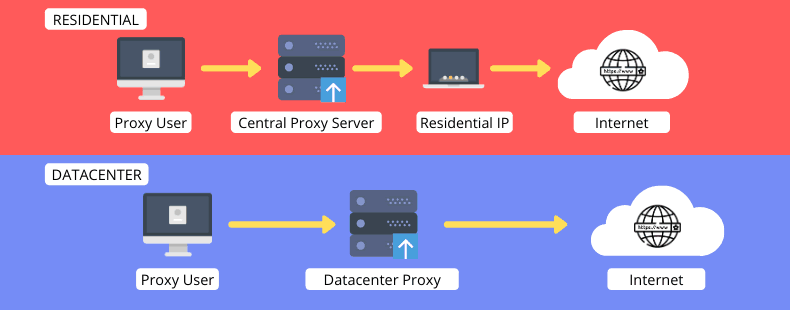
And you can end up through a slower one or a slower Internet connection.
And even if your connection to the proxy network is speedier, the gateway to the broad Internet (the device that offers its IP as a residential one) can throttle your connection and reduce its speed considerably.
This is why you won’t find a network faster than the others. In any network, you will find residential peers (IPs from devices added as proxy servers) with a fast Internet connection that won’t throttle your bandwidth.
And vice-versa, at times, you will get into slow IPs that barely load.
4. How can I test the network?
The only viable test you can do is to check the ISP of the residential proxy by checking it on ARIN.
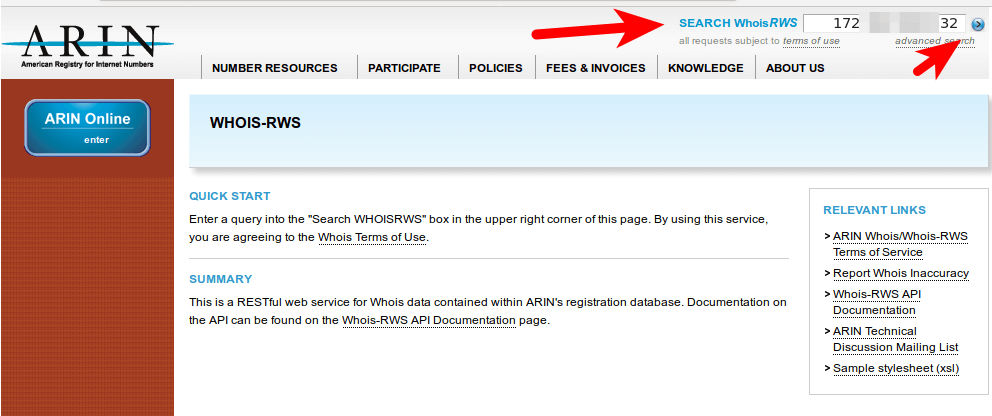
NOTE: You can’t test a whole network (for that you have to trust the provider and take their word for it when they say they have millions of IPs under management. However, you can test individual IPs.
You can find the steps on how to test the network here.
5 After all, do I really need proxies?
You are the only person that should answer this question – nobody else.
Evaluate your project and its needs and try to see how many IPs and what type of proxies you need.
Or if you need proxies at all. Because sometimes, you might not need anything and with a couple of tweaks to your project, you can start without them.
Drop a comment if you have other questions related to residential proxies.
[UPDATE] Bonus FAQ Residential Proxies
1. Where can I buy a single static residential proxy IP?
At present, you can buy static residential proxies with per-IP pricing from Bright Data. If you need only a single IP address, you can get it from them.
Their price per IP is $0.5/month. But you will also incur a traffic cost of $30 per GB – this is a pay as you go option, in which there is no monthly bandwidth commitment and you pay for as much or as little traffic as you use (for a minimum of 1GB per month).
Here’s how to get your single static residential proxy IPs from Bright Data.
- From your Dashboard‘s panel, select Zones and then click on Add Zone.

- Select the zone type, in this case, the Static Residential.
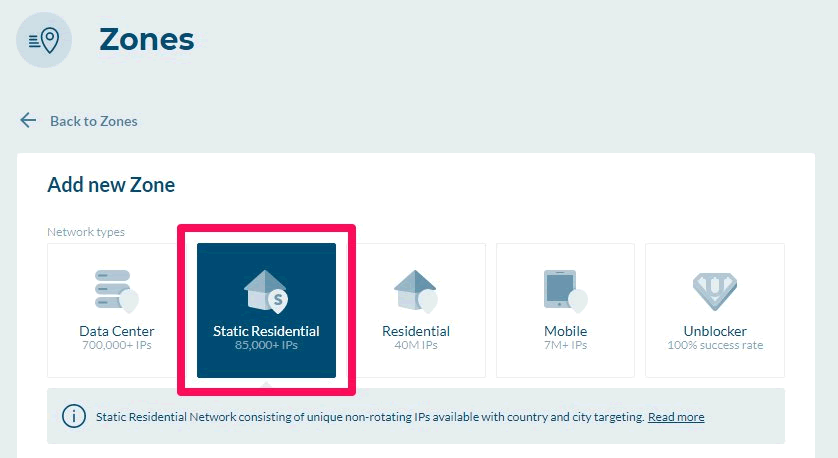
- As pricing select Pay as you go and IP type Exclusive. Next, choose the number of IPs in your pool (minimum of one). Optionally you can also select the country/city from where your IP is allocated.
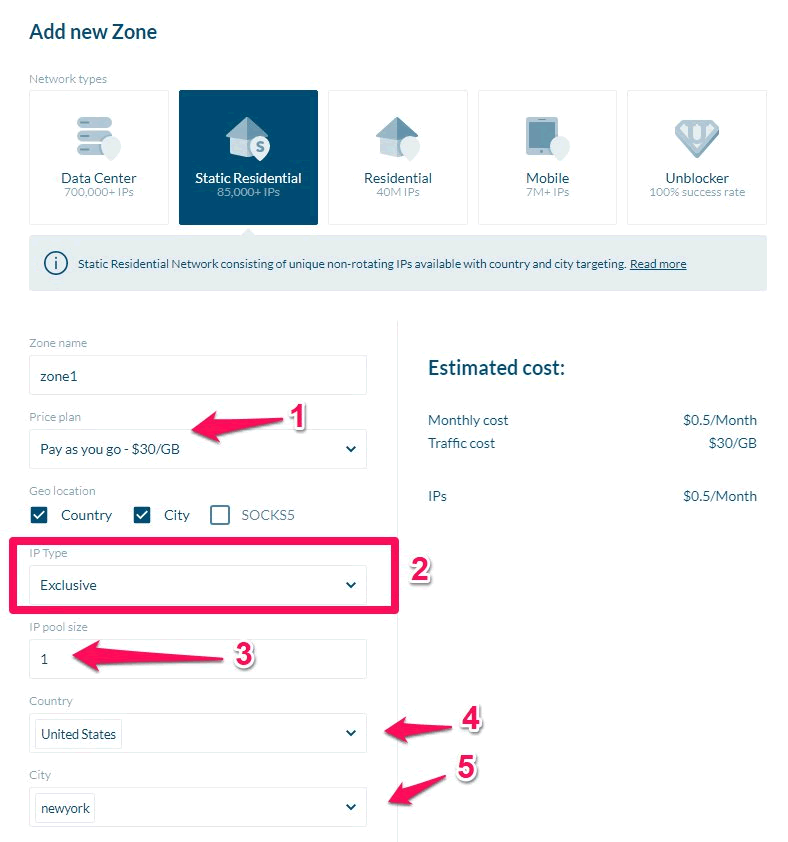
- Click Add Zone to save your settings.
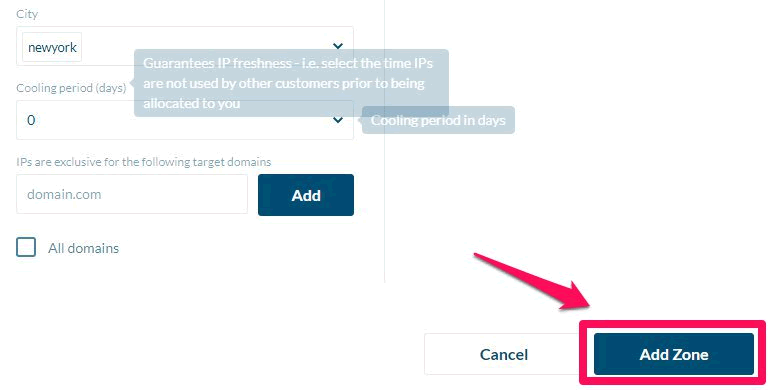
That’s all you have to do to get a single static residential proxy IP. The pricing might be higher, but with Bright Data’s $30/GB per month for pay as you go, you do not have a fixed commitment only for static residential proxies. You can also use their datacenter proxies.
2. What is the difference between residential proxies and sneaker proxies?
Residential proxies are a type of HTTP proxies that don’t use a classic proxy server (like datacenter proxies). Instead, they use consumer-level devices (PCs and smartphones) connected to regular Internet connections (such as an Internet connection we have at our home or through our mobile phone operators). You can learn more about them here.
Sneaker proxies are private proxies, both residential and datacenter ones, that are allocated to be used on sneaker-selling websites. So, residential ones get their name from the way they care created. Whereas sneaker ones get their name from the platform on which they will be used. Moreover, a residential IP can also be a sneaker one, if it is allocated by the provider to be used particularly for sneaker coping.
How does pricing work?
Almost all residential proxies’ pricing is based on bandwidth usage. You pay a set amount for each GB of data used, regardless of the number of proxies used. For example, your project, which needs to run three hours per day, uses 1000 IPs and 2 GB of data every day. At the end of the month, you are charged for the cumulated 60 GB of data (2 GB per day for 30 days), and not for the more than 1000 IPs used.
What services should I buy for a bot?
You can buy from any proxy service you want because, if your bot supports proxies, it will work with any proxy out there, regardless if it’s a free public one, a private or a residential one. However, before asking this question, you should investigate not what service you should buy for your bot, but what proxies work on the platform on which you intend to use them. For example, if you use a social media bot for Instagram, then you need to get Instagram proxies. Whereas for a sneaker bot, you need proxies for sneakers and so on. In other words, you should buy a service adapted to the platform on which you intend to use your bot.
Can I use residential proxies for scraping websites?
Yes. Scraping online data is one of the primary uses of residential proxies. There are several advantages of using residential proxies for scraping:
- No login required – most online data can be retrieved without an account login
- Large IP pool – as most websites have their data free and not hidden behind account walls (logins), the more IPs you use for scraping, the faster you can retrieve the data needed
- Clean IPs – because residential IPs constantly rotate, a scraping project won’t face any blocks or limits
Can a proxy use both HTTP and SOCKS5 protocols?
Yes. An IP address can use both protocols and an HTTP/S and SOCKS5 proxy at the same time. The only difference will be the PORT you will use to connect to it (for example, PORT 9400 for HTTP/S and 5500 for SOCKS).
Regardless of which protocol a proxy uses, if the server is anonymous, websites won’t detect the protocol you used to connect to the server.


